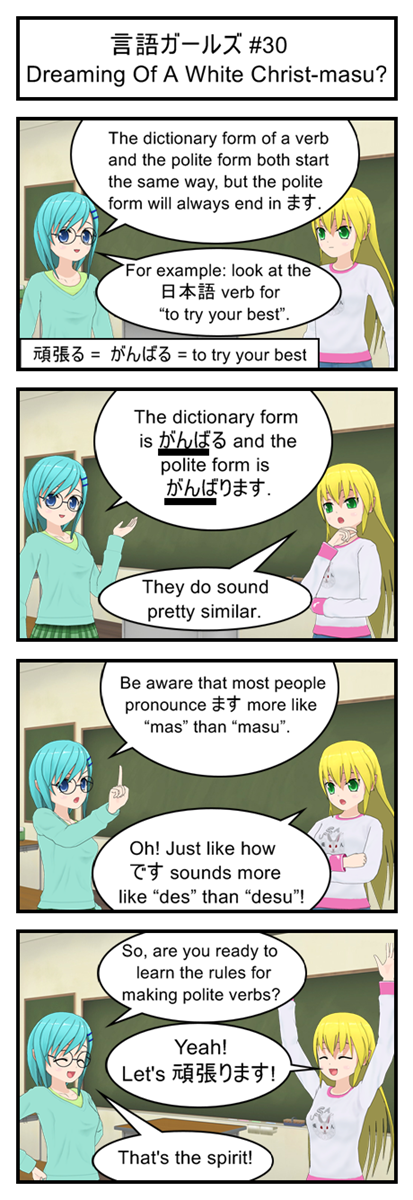
Ganbaru in it’s various conjugated forms is another word that’s really easy to pick out in Japanese media. It’s a common phrase that gets used anytime someone wants to wish someone else good luck (try your best). Or encourage someone who is having a tough time (keep trying). Or compliment someone on a job well done (you did your best (and it worked)). Or to console someone who failed (you did you best (even though it didn’t work out)).
It’s basically a super word that can be pulled out anytime hard work and fighting spirit is involved. And I think it says a lot about Japanese culture that their version of “good luck” is more literally translated as “go work really hard”.
Vocabulary
頑張る = がんばる = to try your best
Transcript
言語ガールズ #30
Dreaming Of A White Christ-masu?
Blue: The dictionary form of a verb and the polite form both start the same way, but the polite form will always end in ます.
Blue: For example: look at the 日本語 verb for “to try your best”.
Blue: The dictionary form is がんばる and the polite form is がんばります.
Yellow: They do sound pretty similar.
Blue: Be aware that most people pronounce ます more like “mas” than “masu”.
Yellow: Oh! Just like how です sounds more like “des” than “desu”!
Blue: So, are you ready to learn the rules for making polite verbs?
Yellow: Yeah! Let’s 頑張ります!
Blue: That’s the spirit!